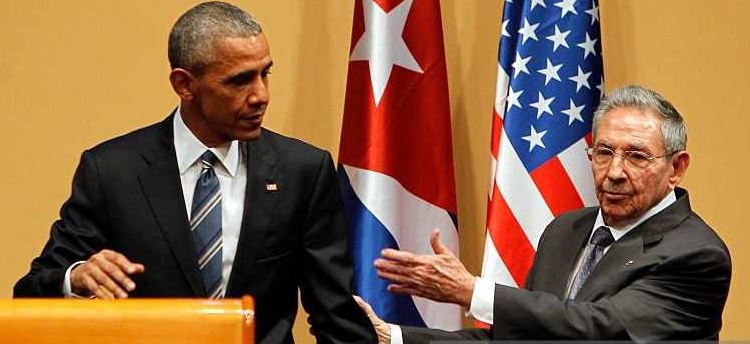
State Dept. project looks suspiciously like an infiltration plan
Are the State Department and the White House on the same wavelength? Do they coexist in the same government? The same city? The same constellation?
The question comes up because, less than a week after President Barack Obama personally assured his Cuban counterpart, Raúl Castro Ruz, that Washington has neither the capacity nor the intention to impose change on Cuba” and that the United States “will not impose our political or economic system on you,” the State Department has announced that it will give some enterprising U.S. organization $753,989 to train as many as 30 “young emerging leaders from Cuban civil society” […] “to manage and grow civil society organizations that will actively support democratic principles in Cuba” — exactly the kind of governance that Havana does not want shoved down its throat.
We are indebted to journalist Tracy Eaton and his blog “Along the Malecón” for publishing the text of the announcement, released on Friday (March 25) and promptly disseminated by the official websites Granma.cu and Cubadebate.cu.
Basically, the announcement says this:
Over a three-year period, the State Department will give $753,989 (that’s more than three-quarters of a million dollars) to a U.S. nonprofit organization or U.S. educational institution to support the young Cubans “in a two- to four-month professional development program [that] will include specialized training” to help them develop “action plans for nongovernmental community activities in Cuba.”
The announcement does not specify what “community activities” will benefit from the “action plans” but points out paternalistically that “Cuban civil society is not formed into well-established organizations that would typically be found in a society with a strong democratic tradition,” e.g., the United States.
By taking part in the program, the young Cubans selected “will develop a set of leadership tools and skills to manage and grow civil society organizations that will actively support democratic principles in Cuba,” the announcement says.
Transplanting U.S.-style democracy to communist Cuba can easily be interpreted as promoting regime change, an effort decried repeatedly by the Cuban government and Raúl Castro himself. To make matters worse, the plan is based on the 1996 Helms-Burton Act, a piece of legislation abhorred by Havana that furnishes assistance and support “for individuals and independent NGOs [nongovernmental organizations] to support democracy-building efforts for Cuba.”
“Cuban civil society is not formed into well-established organizations that would typically be found in a society with a strong democratic tradition,” the proposal says. It will be up to the State Department — a well-established organization — to create such a tradition on the island.
The State Department, through whatever NGO or educational institution that wins its grant, wants to enable a “cadre of young professionals [to] model effective leadership of civil society organizations that […] promote community engagement, support diversity, and further democratic principles in Cuba.”
The young professionals selected (“between 20 and 35 years of age […] university students or young professionals”) will be brought to the United States, given immersion training in U.S. democracy and allowed to “develop a plan of action for activities in Cuba upon returning home.” To some Cubans, this might sound like political infiltration and/or proselytizing — what Cuban government officials have been warning against all along. Cuba has been a one-party communist state for decades; its Constitution proclaims that status.

All this, four days after President Obama, at a press conference with Raúl Castro, told the Cuban president that “Cuba’s destiny will not be decided by the United States or any other nation.”
Forgive us if we’re skeptical or even dubious about this million-dollar plan to decide — or even help decide — Cuba’s destiny. It looks suspiciously like a Trojan horse. It’s fraught with danger and threatens to undo all the efforts toward rapprochement made by well-meaning Americans and Cubans.
Read the State Department’s proposal and draw your own conclusions. No doubt, the Cuban government already has. A reaction should be forthcoming soon.
Emilio Paz is a non-Cuban Cuba watcher living in South Florida.

